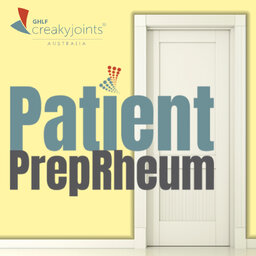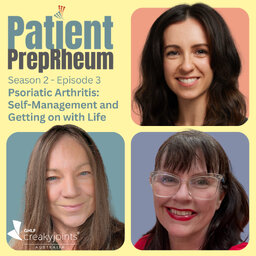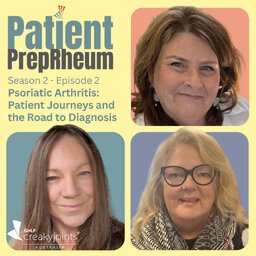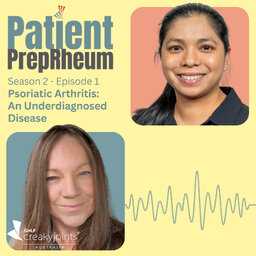Audio Guide: Medicine Approval and Access in Australia
This is an audio guide about the approval and sale of therapeutic goods in Australia, brought to you by CreakyJoints Australia.
Be sure to go to the CreakyJoints Australia website and join for free to keep updated on all of our resources.
TRANSCRIPT
This audio guide is about the approval and sale of therapeutic goods in Australia. It is brought to you by CreakyJoints Australia.
Before therapeutic goods (including medicines, biologicals, vaccines, medical devices and products such as vitamins) can be sold in Australia, they must be approved for sale by the Therapeutic Goods Administration (or “the TGA”). The TGA is a part of the Australian Government Department of Health.
Individuals or organisations, such as pharmaceutical companies, can apply for (or “sponsor”) a therapeutic good to be considered for sale in Australia by the TGA. Sponsors must also supply evidence of their product’s quality, safety and efficacy gathered through clinical trials. The submission is then evaluated by the TGA.
If approved, the product is added to the Australian Register of Therapeutic Goods as a “listed” or “registered” product according to its risk profile. No medicine is 100 per cent risk-free, but the risk is greater for some medicines. Therefore, they place more rigorous controls on higher risk “registered” medicines than lower risk “listed” medicines.
Listed products can be sold through supermarkets or pharmacies without a prescription, though not all are evaluated by the TGA for efficacy.
All registered products are always evaluated for efficacy before they go on sale. Some are available in pharmacies over the counter after consultation with a pharmacist. Prescription products are only available with a valid prescription from an approved health professional and can only be sold through pharmacies.
The Pharmaceutical Benefits Scheme (or “PBS”) heavily subsidises the cost of prescription products for all Australians with a Medicare card as well as some Australian visitors. For example, the actual cost of some medications for autoimmune arthritis is well over $1,000 but, through the PBS, consumers pay less than $50 for them at the pharmacy.
Sponsors can apply for registered products to be added to the PBS. These applications are considered by the Pharmaceutical Benefits Advisory Committee (or “the PBAC”). The PBAC is an independent body of health professionals and consumer representatives appointed by the Australian Government.
The PBAC meets at least three times a year to review the applications on their agenda. They assess relevant information from the sponsor, the TGA and public submissions before deciding if they should recommend products to the Minister for Health for inclusion on the PBS.
Public submissions can come from patients, carers, members of the public, health professionals or consumer groups and are a valued part of the process. They help the PBAC understand how the proposed product will benefit consumers. These perspectives may be quite different from those presented by the sponsor.
Products that are on the Australian Register of Therapeutic Goods but are not included on the PBS may still be sold in Australia but they are not subsidised by the Government.
If there is a product that you would benefit from that is not currently listed on the PBS, you can ask your healthcare professionals or relevant consumer groups to help you bring it to the attention of the PBAC. This could start the process of making the product available to you and others like you.
 Patient PrepRheum
Patient PrepRheum


